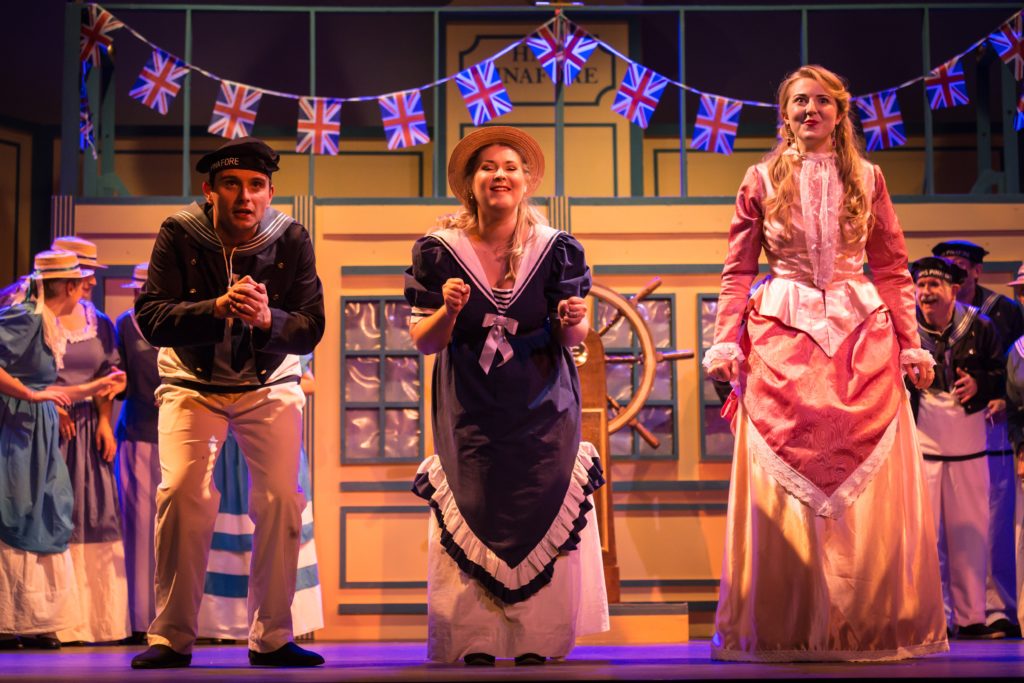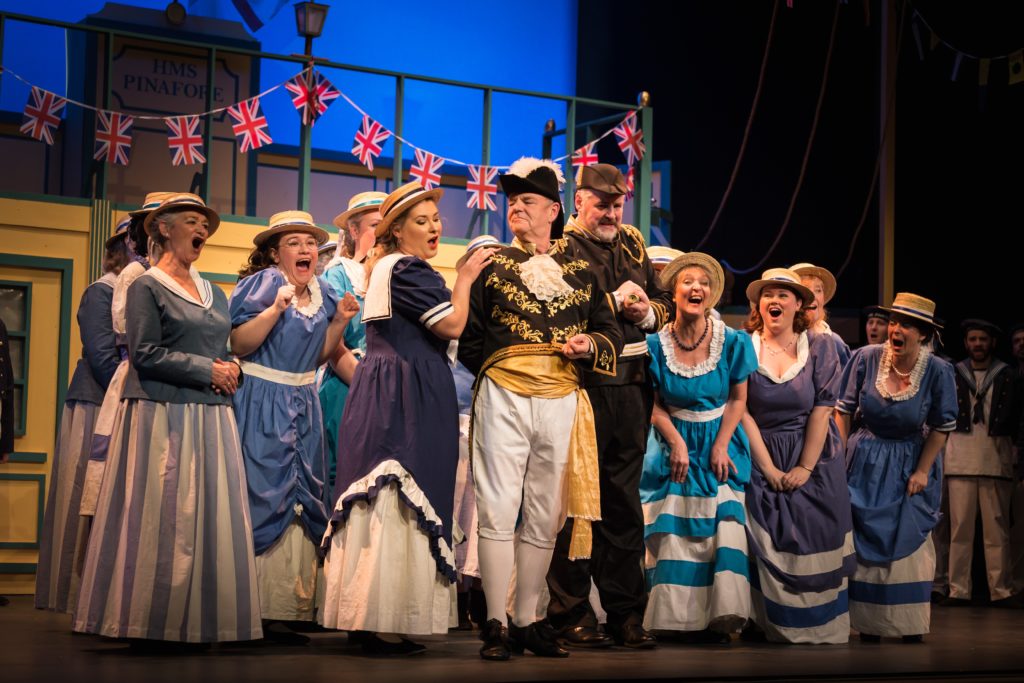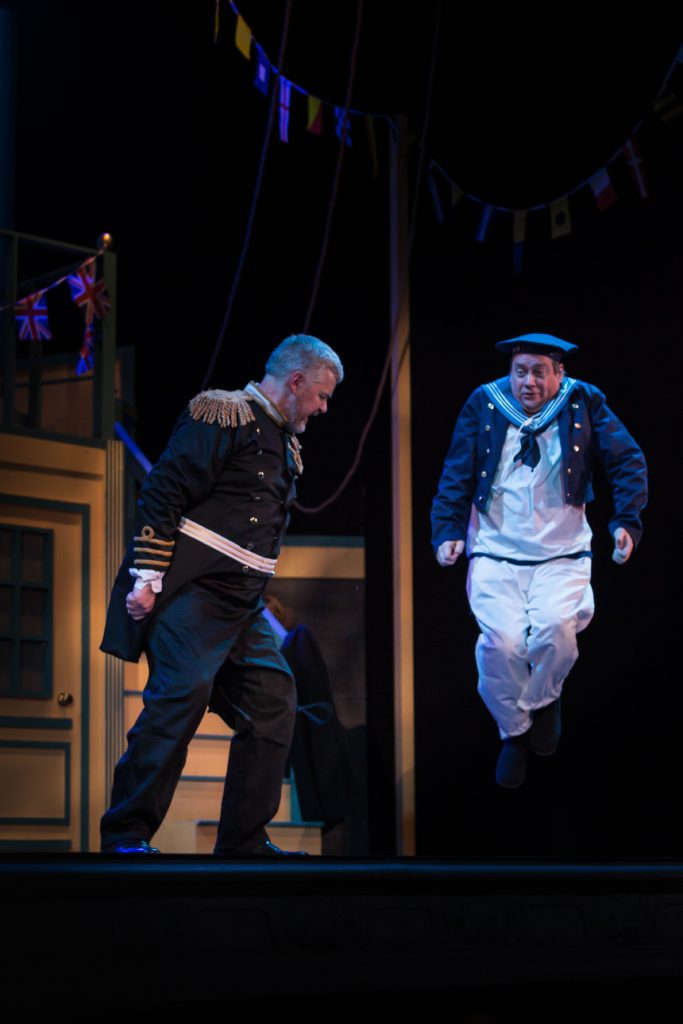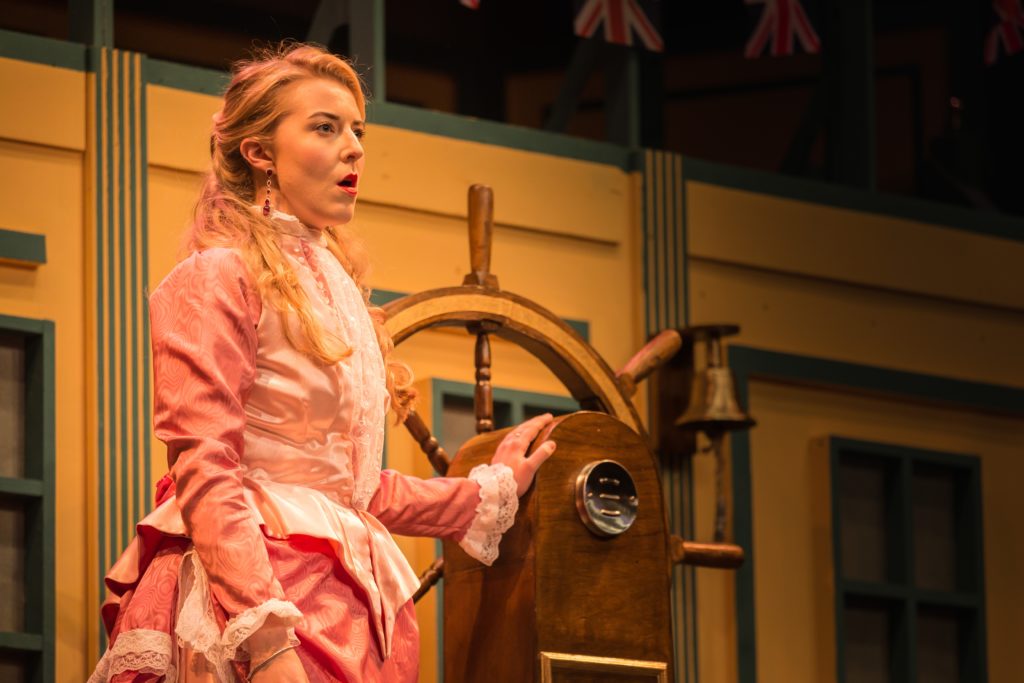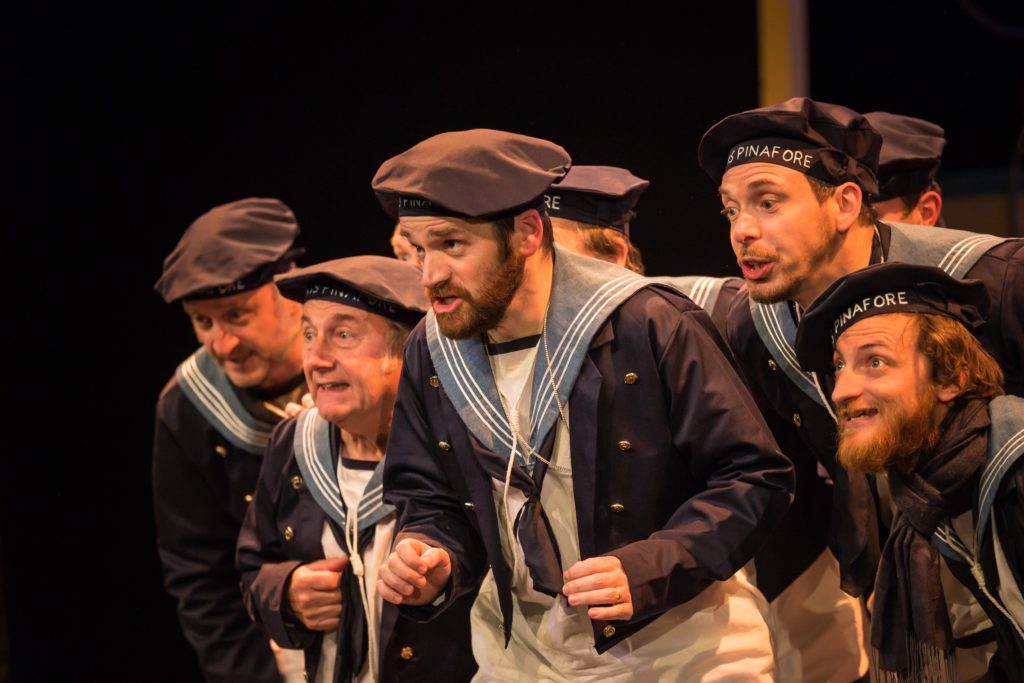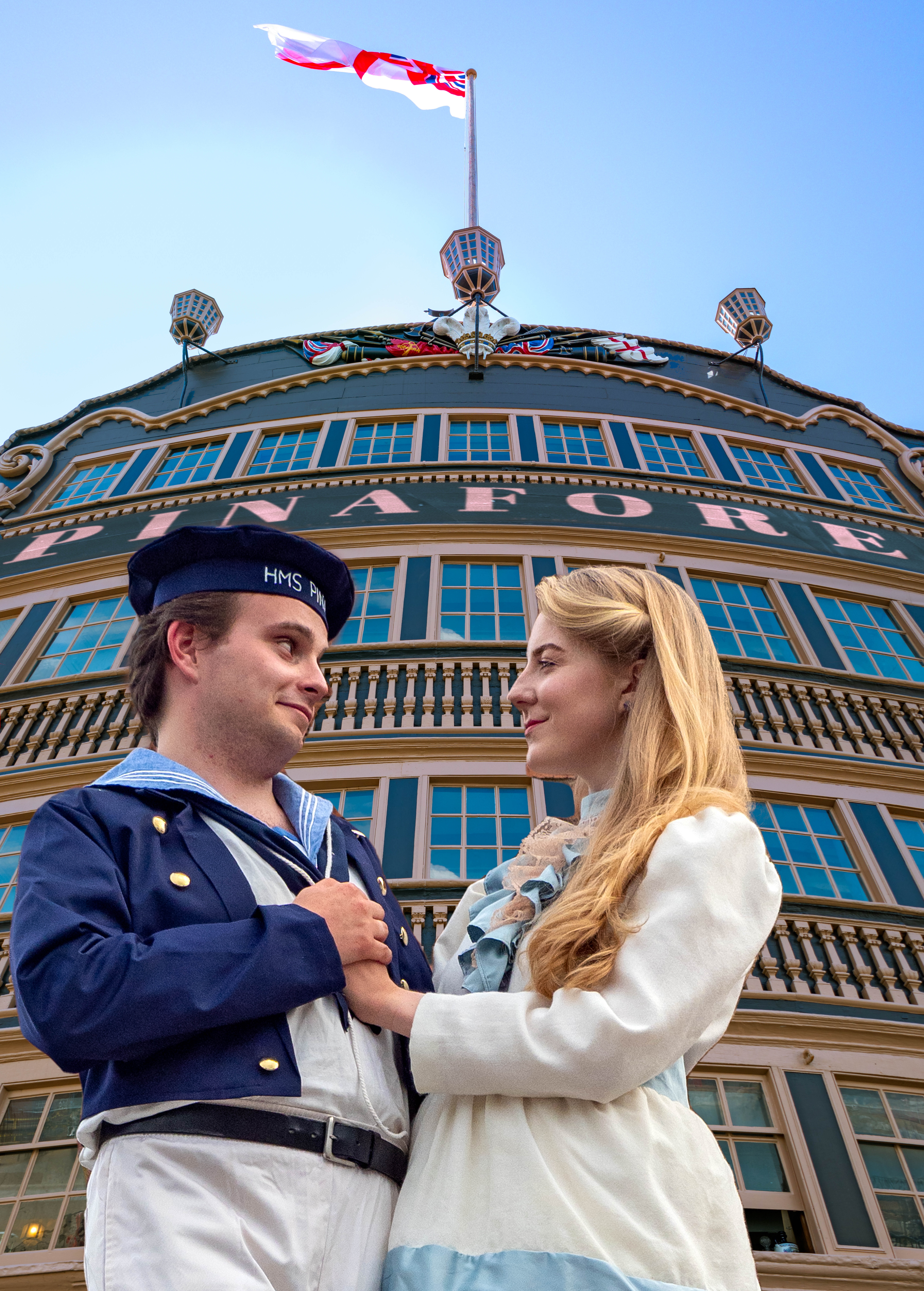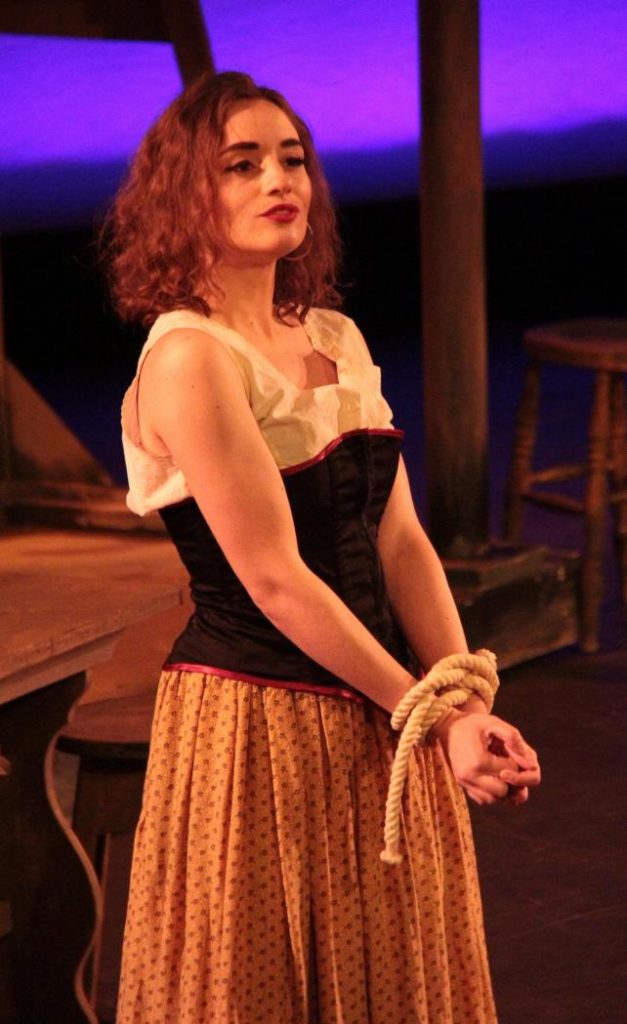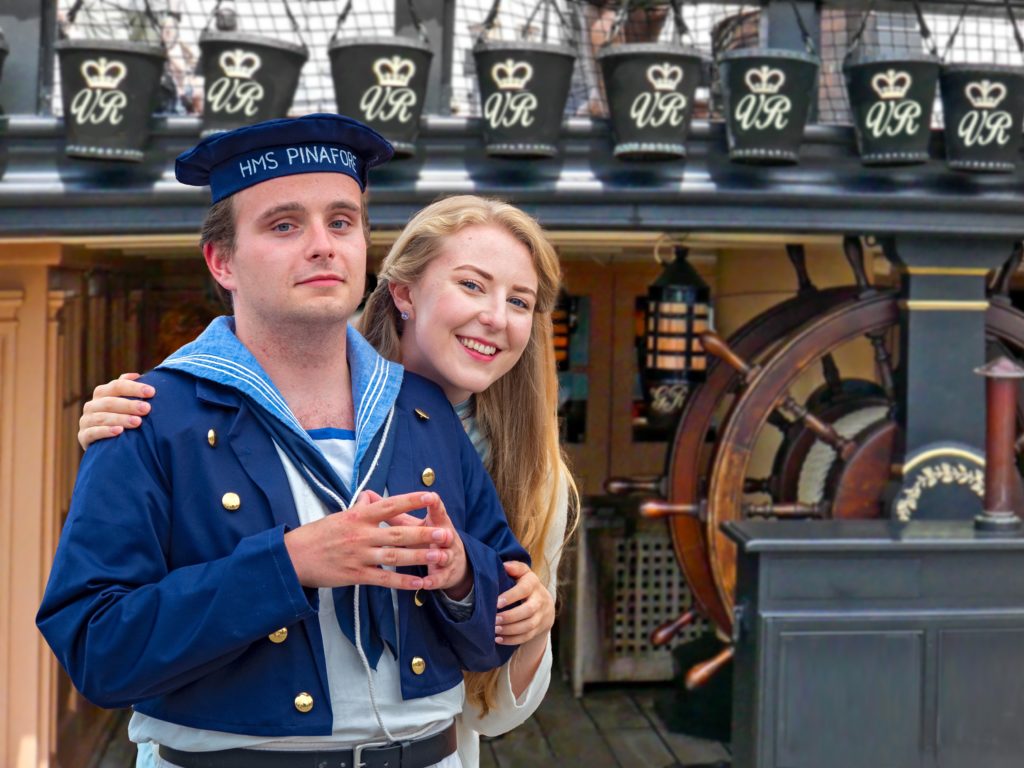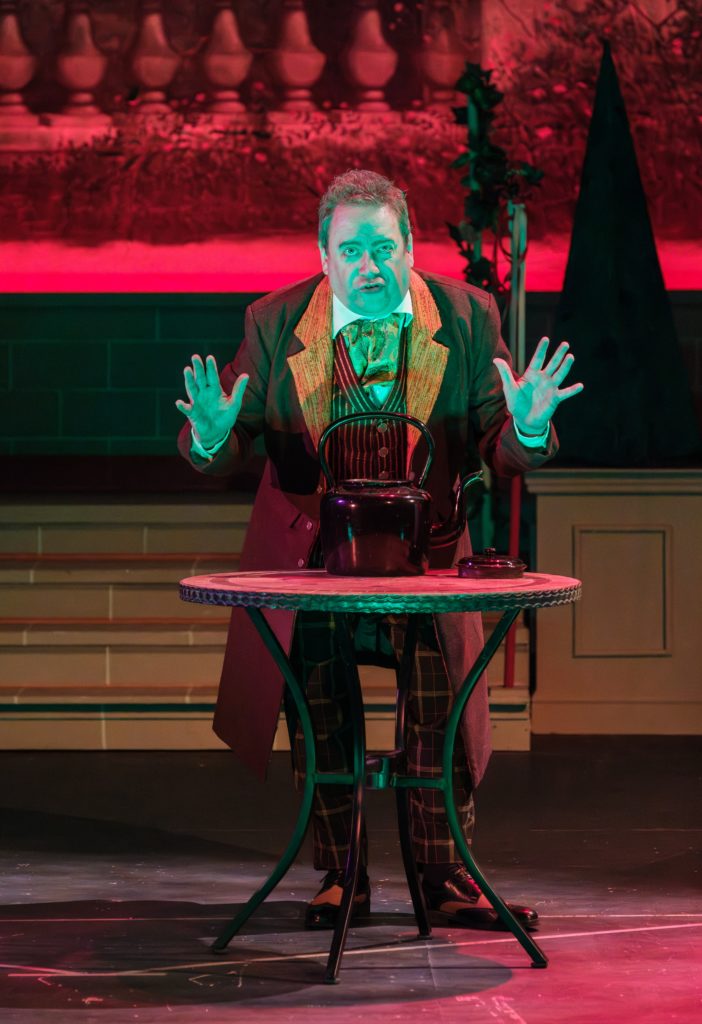
THE Sorcerer is a two-act Gilbert & Sullivan opera based on an earlier Sir William Schwenck Gilbert Christmas story, The Elixir Of Love, and is a typical poke in the eye satire on Victorian England’s class-ridden society.
It is the third operatic collaboration, and certainly not their best – much of the second half is dramatically pretty dull – but there is no denying that York Opera’s production of The Sorcerer is absolutely wonderful. And with a company led by John Soper (stage director and set design), Maggie Soper (costume design) and musical director Alasdair Jamieson, it just had to be, didn’t it.
The opening orchestral overture is pretty much spot on: crisp, articulate playing, generating a quiet confidence for the singers to draw from. And they do. The double chorus Ring Forth, Ye Bells is rhythmically tight and full of joie de vivre.
And why not. Love is in the air and the common villagers of Ploverleigh are preparing to celebrate the betrothal of Alexis Pointdextre (Hamish Brown, tenor), Grenadier Guards, son of local baronet Sir Marmaduke Pointdextre (Ian Thompson-Smith, baritone) and a total bore to boot, to the blue-blooded Aline Sangazure (Alexandra Mather, soprano), daughter of aristocratic Lady Sangazure (Rebecca Smith, contralto). A match made in heaven.
Constance (Emma Burke, soprano) is not a happy bunny as she is secretly in love with the local vicar Daly (Christopher Charlton-Mathews, baritone). However, after the first sighting of said vicar chasing butterflies with a butterfly net – a brilliantly comic scene that could have been choreographed by Sir Ed Dave – one did have to question why?
Anyway, that’s enough of the introductions. Emma Burke’s When He Is Here, I Sigh With Pleasure is simply delightful: lovely tone, crystal-clear diction. It is just a pity that there are so few opportunities here for Ms Burke to shine.
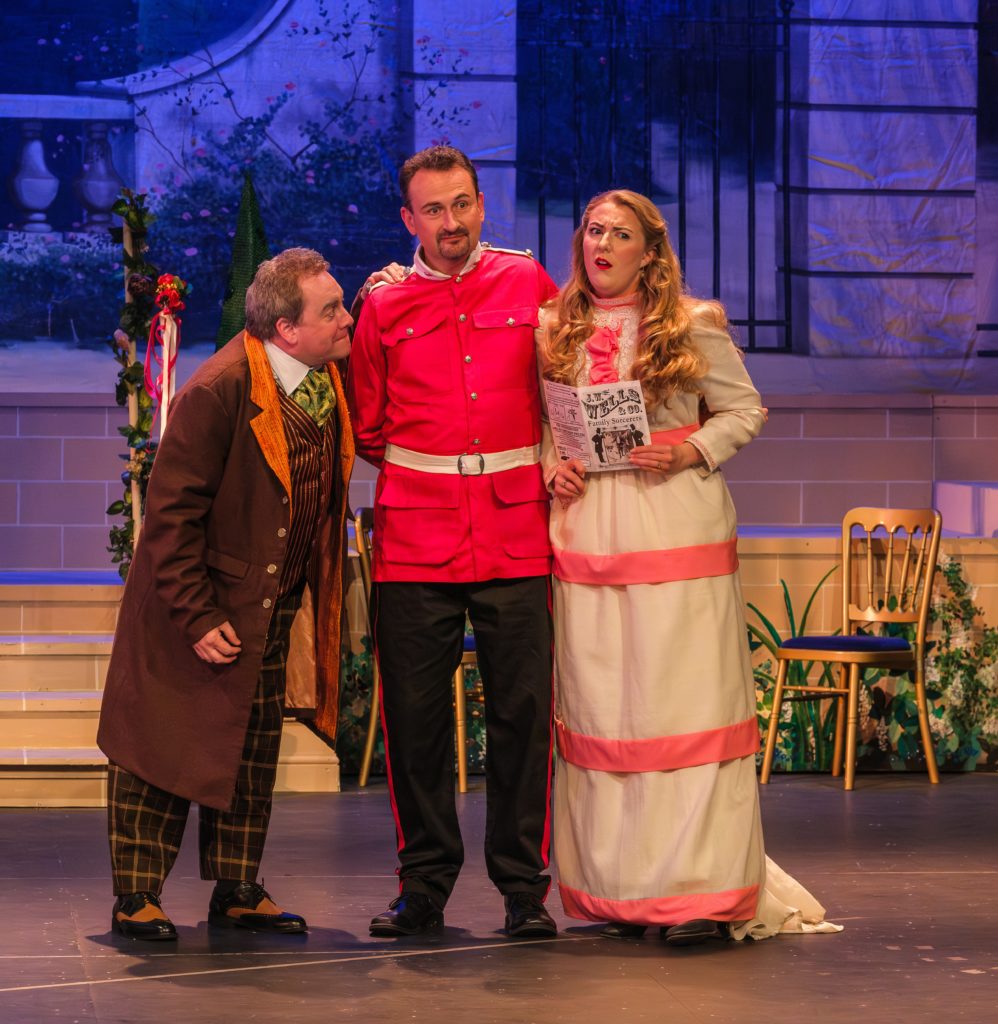
The response from Mr Charlton-Mathews – a sweet, melancholic The Air Is Charged With Amatory Numbers and Time Was When Love And I Were Well Acquainted – are terrific. His comic timing and mannerisms are infectious. As indeed they prove to be throughout.
Following a crisply choreographed dance and a touching female chorus With Heart And With Voice, we arrive at the vocal high point, literally. Alexandra Mather (Aline) delivers a powerful Happy Young Heart with relatively eyewatering high notes.
Enter Sir Marmaduke – with a lineage going back to Helen of Troy, he claims – and Lady Sangazure. They clearly have history, not as far back as Homer’s Iliad, as revealed in their tender love duet, Welcome Joy, Adieu To Sadness.
Enter Alexis, who tells his blue-rinsed fiancée that love has the power to unite all classes and ranks (“without rank, age or fortune…”) in a passionate Love Feeds On Many Kinds Of, I Know. He decides to implement this musical ‘levelling-up’ policy via an elixir or love potion from the entirely respectable London firm, J.W. Wells & Co, Family Sorcerers.
And it is just as well he does as it introduces a show-stealing Anthony Gardner (baritone) in the form of John Wellington Wells. Mr Gardner’s spiky, animated and wonderfully sung My Name Is John Wellington Wells, followed by the theatrical incantation Sprites Of Earth And Air (with Alexandra Mather, Hamish Brown and Chorus) is the opera highlight. Of course it is. His pantomime villain is reminiscent of the incomparable David Leonard, infused with a dash of Del Boy.
What follows is A Midsummer Night’s Dream gone nuts. The potion is administered via a cup of tea from a giant teapot and, following hallucinatory experiences (Oh, Marvellous Illusion) and the village falls into a drug-infused sleep.
Act II begins at midnight, as tradition decrees, when the villagers wake up and instantly fall in love with the person next to them. Of the opposite sex, obviously! If the village people had an inkling of what was to come, they might have positioned themselves into a more advantageous position.
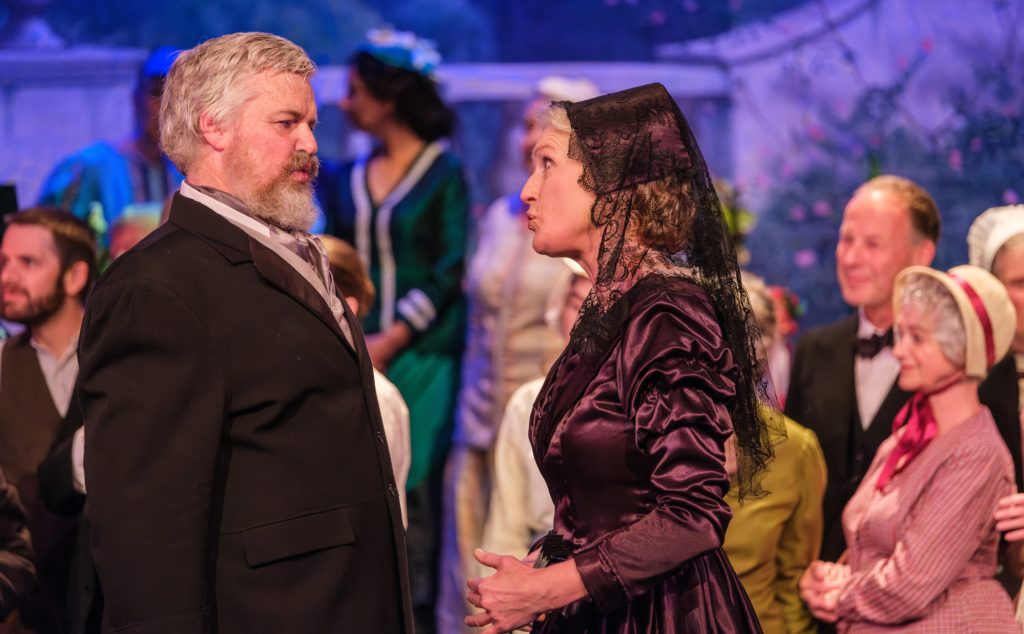
As it is, all the matches made are both highly unsuitable and comical. The best of these by far is Constance (Emma Burke’s) duet with the ancient, ear-trumpeting notary Adrian Cook (bass, with a clear lower register).
During the brilliantly performed Dear Friends, Take Pity On My Lot it is implied that his heart, so full of joy, is likely to be one ending in heart failure. There is a delightful vocal quintet, I Rejoice That It’s Decided, with Alexandra Mather, Amanda Shackleton, Hamish Brown, Christopher Charlton-Mathews and Ian Thompson-Smith. The balance is spot on.
But there is no way of getting away from it, the star is Anthony Gardner’s John Wellington Wells. He catches both the eye (big time) and the ear throughout; his performance is outstanding. Although why the villagers vote to do away with him and not the son of Sir Marmaduke Pointdextre, Alex, is beyond me. No offence meant Mr Brown, you are very good indeed.
Not all of the production is flawless; at times the orchestra and singers aren’t completely in sync and not all of the singing is pitch perfect. But this was the first night for goodness’ sake.
But let’s finish with a collective role call for the superb John and Maggie Soper, Pauline Marshall, Clare Bewers (stage manager) and Eric Lund (lighting) and all the hard-working creative team involved. Take a bow. The Sorcerer orchestra, excellent throughout. Take a bow. And lastly, but not least, musical director Alastair Jamieson, who conducts the whole comic opera with clarity, authority and musical insight. He must have been delighted. Take a bow. Hang on, you already have done.
York Opera, The Sorcerer, York Theatre Royal, tonight at 7.30pm; tomorrow, 2.30pm and 7.30pm. Box office: 01904 623568 or yorktheatreroyal.co.uk.
Review by Steve Crowther

